George Osborne's priorities as Evening Standard editor
- Published
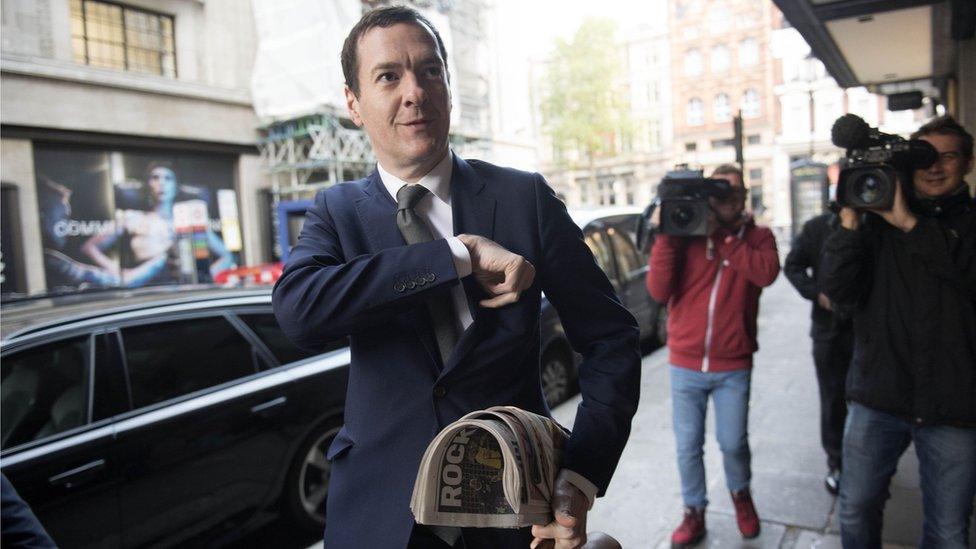
Like many a journalist, George Osborne arrived for work clutching a selection of the day's newspapers
George Osborne has had countless exhilarating moments in his career - and plenty of grim ones too.
He will have felt a surge of adrenaline when, this morning, he sat in the editor's chair at the Evening Standard for the first time. And thank goodness, because his new working hours mean he has to wake up at about 5am.
Here are six priorities in his new role.
1) Set out an editorial vision
Leadership is about vision, articulating where you want your team to reach - perhaps some shining city upon a hill.
Management is the daily trudge to get there.
The first thing any new editor has to do is set out very clearly where he wants to take the organ.
Who is it for, where will it sit politically, what key changes is he intent on making, and so on.
I can imagine Osborne saying, when he addresses staff after the first edition is sent to the printers, that London is his home city, the place of his birth, and that he wants the Standard to be a paper for London, by Londoners.
He might say: "For the past 20 years I've been a Conservative, but always a liberal one, and now I want us to fight for the liberal mainstream majority in this city."
Since leaving No 11, Osborne has missed running things. He'll enjoy being a boss again.
2) Prove he knows about journalism
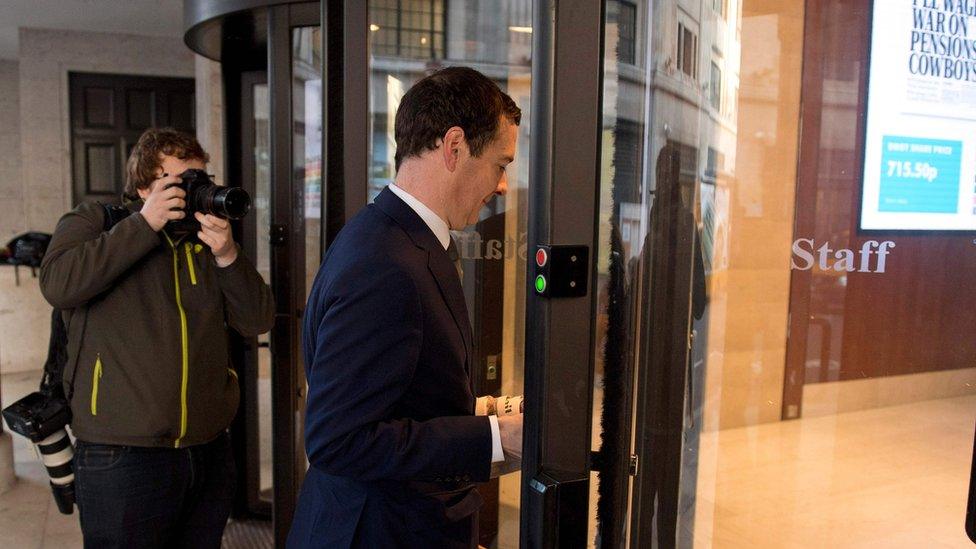
The former chancellor previously made headlines - now he has to write them
Editors depend for their efficacy on authority, and specifically the authority to make things happen - that is, power.
The sources of authority are several: First, natural authority, which comes from your manner, reputation, and character.
Second, the intellectual force of your leadership and vision. Third, a strong mandate from the proprietor. And fourth, knowledge of the craft you now practise.
And here Osborne is starting with - to use a term he knows well - a deficit. Since his student days, he hasn't rewritten a picture caption, designed a front page, or converted the seventh paragraph of his most pompous columnist's weekly contribution into an intro.
All this will take time, as will getting comfortable with some of the jargon beloved by old print hands, who talk of widows and orphans constantly (don't ask).
Osborne needs to impose himself intellectually and journalistically to persuade his colleagues he isn't an amateur. A masterstroke of a splash headline this week would help. So too would a gentle redesign.
Readers can get annoyed at redesigns, but given this paper is free, they might forgive it, and for Osborne it could be an unbeatable way to excite staff, show he cares about the small print (literally), and break with the past.
3) Build his relationship with the staff
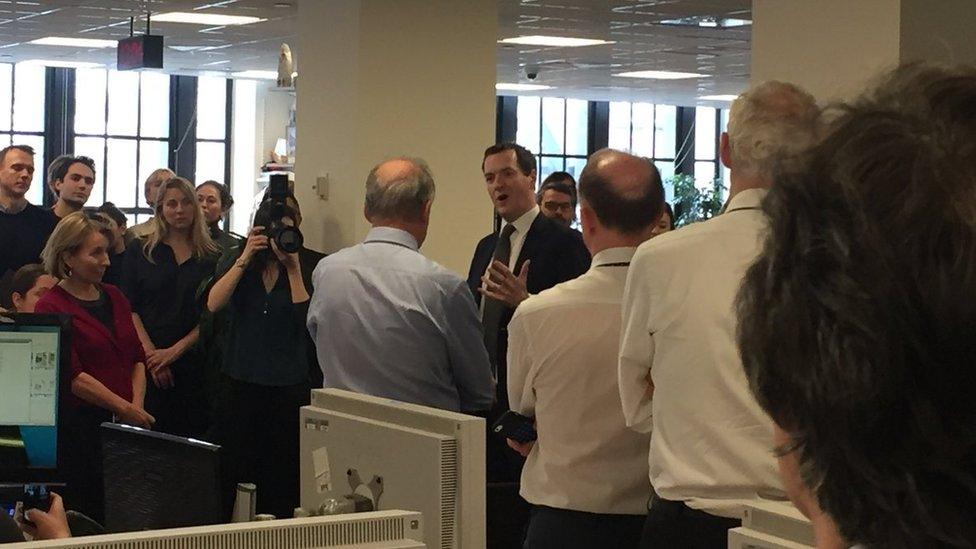
George Osborne had met the Evening Standard staff before his first day
Osborne has done this several times of course, not least at the Treasury.
Newspapers are generally very hierarchical places. He will quickly discover that if one of his specialists or a desk editors is off sick, the paper will still come out, but when the lowest-paid among the production staff catches a flu, the paper is full of errors, he gets a nasty fine for being late, and the darn thing nearly fails to be printed.
Aside from getting to know junior staff in editorial and production, Osborne will need to get to know all the commercial staff too, because the Standard's business model is so dependent on selling ads.
He went round and introduced himself to them all when he went into the office a few months ago, and ought to do that again.
4) Reimagine the business model, and talk about a turnaround
The Standard's business model is under immense pressure. Being free, it has no cover price revenue and is therefore funded mainly by print display advertising.
But that market is disappearing fast and, although the Standard has mostly fixed distribution costs, Osborne needs to find new revenues - quickly.
Bringing in high-profile speakers for big events is one way to achieve this and he will need to call in some big favours very soon.
Mike Bloomberg, Christine Lagarde, David Cameron and even his chum Emmanuel Macron should expect calls.
As chancellor, Osborne grasped the importance of a turnaround, or crisis-and-resolution, narrative.
This is not unique to UK politics: Mitt Romney wrote a book called Turnaround.
Just as, years ago, the austerity chancellor left voters in no doubt that Britain's economy was on the brink, so as to justify some harsh medicine, so he may talk openly in coming weeks about why the crisis in the advertising market makes it necessary for him to make painful decisions, including any sackings.
5) Pick a fight with government
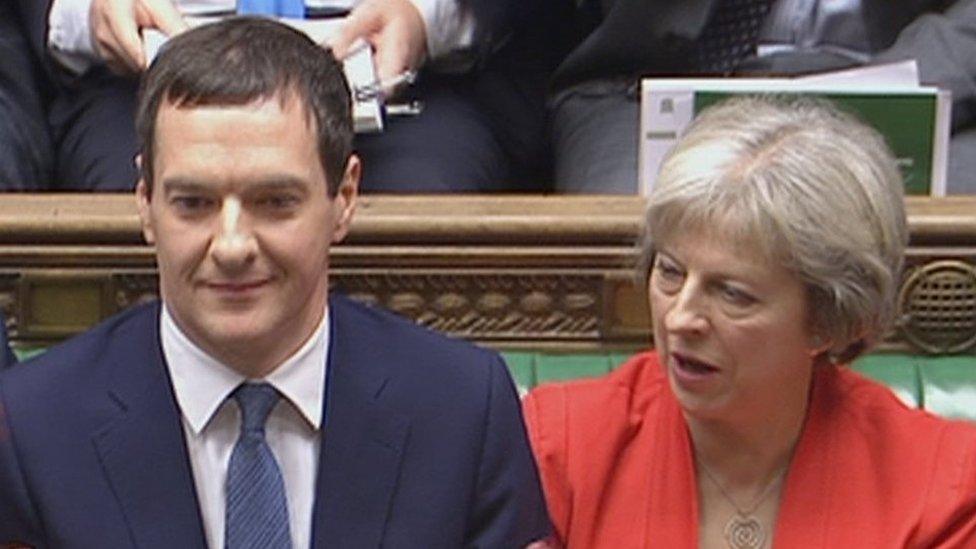
Theresa May was once George Osborne's ally - could that relationship now become strained?
I spoke to one Standard hack over the weekend who said "Theresa May has done us a massive favour!"
The fact that Osborne is no longer MP for Tatton in Cheshire means he'll have more time available, will be less dogged by controversy over his split loyalties, and will evade (some) censure for holding too many jobs.
But he still has to prove his independence from government. To be seen as a Tory lackey would be fatal for his authority.
So expect a major assault on the government's handling of Brexit, or perhaps the announcement of a new columnist from the Left.
Jeremy Corbyn could be prime minister in a few weeks but if he isn't then, as a veteran London MP, perhaps he could be a candidate for the editor's favour?
Goodness knows whether his prose is elegant, though.
6) Prove he's not compromised by BlackRock
As I've argued several times now, it is very hard to see how Osborne can reconcile being in charge of the City pages with his work for BlackRock.
Aside from the time commitment, if any of BlackRock's clients are in the news Osborne faces a choice: Even if he doesn't realise it.
Is he covering them as an impartial, ferocious editor, prepared to stand up to the mighty?
Or is the fact that he gets paid £650,000 for four days' work every month going to enter his mind, as his fingers hover over the keyboard and he formulates a headline?
- Published17 March 2017
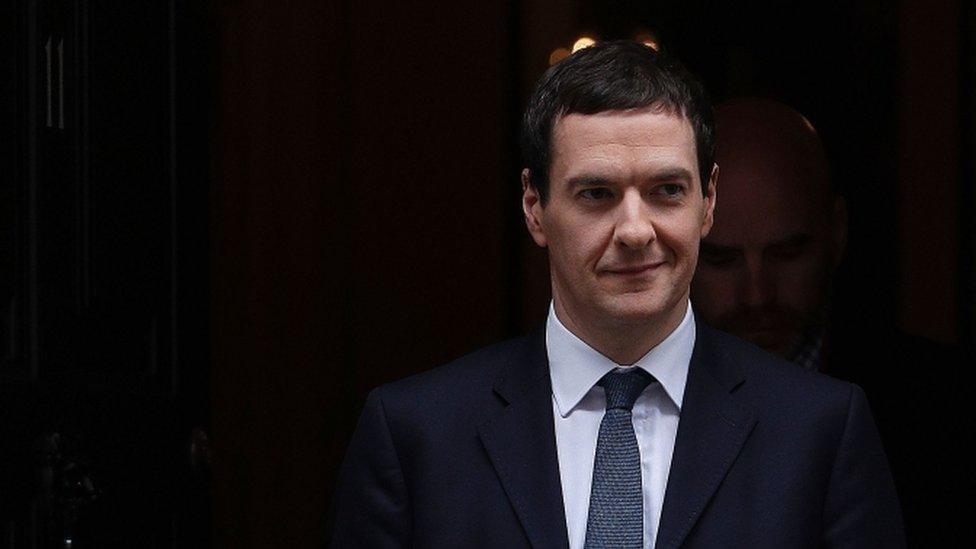
- Published17 March 2017
